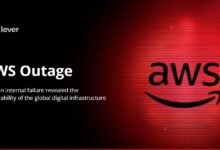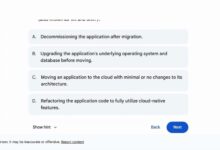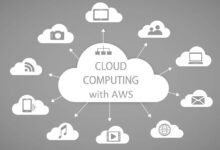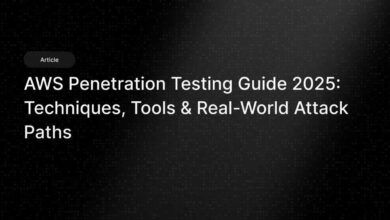AWS Certified Cloud Practitioner: 7 Ultimate Power Tips to Master the Exam
Thinking about launching your cloud career? The AWS Certified Cloud Practitioner certification is your golden ticket. It’s the perfect starting point for anyone eager to understand Amazon Web Services at a foundational level—no deep technical skills required. Let’s dive into everything you need to know to not just pass, but truly master this game-changing credential.
What Is the AWS Certified Cloud Practitioner Certification?
The AWS Certified Cloud Practitioner is the entry-level certification offered by Amazon Web Services (AWS), designed for individuals who want to demonstrate a solid understanding of the AWS Cloud. It’s ideal for non-technical roles such as sales, management, and finance, as well as technical beginners who are just stepping into the world of cloud computing.
Who Should Pursue This Certification?
This certification isn’t limited to developers or engineers. It’s perfect for:
- Business analysts looking to understand cloud cost models
- Project managers overseeing cloud-based projects
- Students exploring career paths in IT and cloud
- Sales and marketing professionals in tech companies
- IT professionals transitioning from on-premise to cloud environments
According to AWS’s official certification page, this credential validates your ability to articulate the benefits of the AWS platform and understand core services, security, and pricing.
Benefits of Becoming AWS Certified
Earning the AWS Certified Cloud Practitioner title brings tangible advantages:
Career Advancement: It opens doors to cloud-related roles and demonstrates initiative.Higher Earning Potential: Certified professionals often command better salaries.Industry Recognition: AWS is the market leader, and their certifications are globally respected.Confidence in Cloud Conversations: You’ll be able to contribute meaningfully in meetings involving cloud strategy.
.”Certification is not just a badge—it’s proof that you’ve invested time in understanding one of the most powerful technologies shaping our world.” — AWS Training and Certification Team
Why the AWS Certified Cloud Practitioner Is a Game-Changer
In today’s digital-first economy, cloud literacy is no longer optional—it’s essential.The AWS Certified Cloud Practitioner certification equips you with the foundational knowledge needed to thrive in a cloud-driven workplace.Whether you’re in IT, business, or education, this credential helps bridge the gap between technical and non-technical teams..
Democratizing Cloud Knowledge
One of the most powerful aspects of this certification is its accessibility. Unlike advanced AWS certs that require coding or system architecture skills, the Cloud Practitioner exam focuses on concepts, not configuration. This makes it a true democratizer of cloud knowledge.
For example, a marketing manager can learn how AWS supports scalable web applications during campaign launches, or a finance officer can understand how pay-as-you-go pricing reduces capital expenditure. This shared understanding fosters better collaboration across departments.
Foundation for Advanced AWS Certifications
Think of the AWS Certified Cloud Practitioner as the first step on a certification ladder. Once you’ve passed this exam, you’ll have a solid base to pursue more advanced credentials like:
- AWS Certified Solutions Architect – Associate
- AWS Certified Developer – Associate
- AWS Certified SysOps Administrator – Associate
Many professionals use the Cloud Practitioner exam as a confidence booster before diving into technical tracks. It’s like learning the rules of the game before playing at a higher level.
Exam Structure and Key Domains of the AWS Certified Cloud Practitioner
To succeed, you need to know exactly what’s on the exam. The AWS Certified Cloud Practitioner exam (CLF-C02) consists of 65 multiple-choice and multiple-response questions, with a time limit of 90 minutes. The passing score is 700 out of 1000.
Domain 1: Cloud Concepts (26% of the Exam)
This domain tests your understanding of fundamental cloud principles. Key topics include:
- Defining the cloud and its characteristics (on-demand, scalability, elasticity, etc.)
- Understanding the differences between public, private, and hybrid clouds
- Explaining the benefits of cloud computing (cost savings, global reach, agility)
- Grasping the shared responsibility model
You should be able to explain why a company might migrate from on-premise servers to AWS, citing real-world advantages like reduced maintenance and faster deployment.
Domain 2: Security and Compliance (25% of the Exam)
Security is a top concern for any organization moving to the cloud. This section evaluates your knowledge of AWS’s security model and best practices.
- Understanding AWS Identity and Access Management (IAM) basics
- Recognizing the importance of encryption (at rest and in transit)
- Familiarity with compliance programs like GDPR, HIPAA, and SOC
- Knowing how AWS Artifact provides compliance reports
For instance, you should know that IAM allows you to control who has access to which AWS services and resources, and that AWS manages physical security while customers manage access policies.
Domain 3: Technology (33% of the Exam)
This is the largest domain and covers core AWS services. You’ll need to understand the purpose and use cases of key services.
- Compute: EC2, Lambda, Elastic Beanstalk
- Storage: S3, EBS, Glacier
- Networking: VPC, Route 53, CloudFront
- Databases: RDS, DynamoDB
- Management Tools: CloudWatch, AWS Config
You don’t need to know how to configure these services, but you should be able to match a business need (e.g., storing backups) with the right service (e.g., Amazon S3).
Domain 4: Billing, Pricing, and Support (16% of the Exam)
This domain ensures you understand how AWS pricing works and how to manage costs effectively.
- Understanding the AWS Free Tier and its limitations
- Using the AWS Pricing Calculator and Total Cost of Ownership (TCO) Calculator
- Differentiating between On-Demand, Reserved, and Spot Instances
- Knowing the levels of AWS Support plans (Basic, Developer, Business, Enterprise)
For example, you should be able to explain how Reserved Instances can save money for predictable workloads, or how the Business Support plan includes 24/7 access to Cloud Support Engineers.
How to Prepare for the AWS Certified Cloud Practitioner Exam
Preparation is key. The good news? You don’t need months of study. With the right strategy, you can pass in 4–6 weeks, even with a full-time job.
Create a Study Plan
Start by mapping out a realistic study schedule. Dedicate 1–2 hours per day, 5 days a week. Break your plan into weekly goals:
- Week 1: Cloud Concepts and AWS Global Infrastructure
- Week 2: Core AWS Services (Compute, Storage, Networking)
- Week 3: Security, IAM, and Compliance
- Week 4: Pricing, Billing, and Practice Exams
Use the AWS Cloud Practitioner Essentials course, a free digital training that covers all exam domains.
Leverage Free and Paid Resources
There’s a wealth of resources available:
- AWS Skill Builder: Offers official courses, including the Cloud Practitioner Essentials.
- Udemy: Popular instructors like Stephane Maarek and Neal Davis offer comprehensive video courses.
- Practice Exams: Platforms like Whizlabs, Tutorials Dojo, and A Cloud Guru provide realistic mock tests.
- Whitepapers: Read the AWS Overview and Architecting for the Cloud whitepapers.
Pro tip: Take at least 3 full-length practice exams before the real thing. This builds stamina and helps identify weak areas.
Hands-On Experience (Even for Non-Tech Roles)
While the exam is concept-based, hands-on experience reinforces learning. Sign up for the AWS Free Tier and explore the console.
- Launch a free EC2 instance
- Create an S3 bucket and upload a file
- Explore IAM by creating a test user
You don’t need to write code—just navigating the AWS Management Console gives you a feel for how services are organized and accessed.
Common Mistakes to Avoid as an AWS Certified Cloud Practitioner Candidate
Even smart candidates fail—not because they lack knowledge, but because of avoidable errors. Here are the most common pitfalls.
Underestimating the Exam
Because it’s “entry-level,” many assume the AWS Certified Cloud Practitioner exam is easy. While it’s the easiest AWS cert, it’s not trivial. The questions are scenario-based and require careful reading.
Example: A question might ask, “Which service is best for hosting a static website?” The options could include EC2, S3, and Lambda. Without understanding that S3 can host static websites directly, you might overthink and choose EC2.
Memorizing Without Understanding
Rote memorization won’t cut it. AWS wants you to understand *why* a service is used, not just *what* it does.
Instead of memorizing “S3 is for storage,” understand that S3 is object storage, ideal for unstructured data like images, videos, and backups, and that it offers high durability (99.999999999%) across multiple facilities.
Ignoring the Free Tier and Cost Management
Many candidates focus only on technical services and neglect the billing domain. But 16% of the exam is on pricing and support—enough to fail if ignored.
Make sure you can explain how the Free Tier helps new users, how Reserved Instances reduce costs, and what’s included in each AWS Support plan.
Real-World Applications of AWS Certified Cloud Practitioner Knowledge
The value of this certification extends far beyond the exam room. The knowledge you gain applies directly to real business challenges.
Supporting Digital Transformation Projects
Organizations undergoing digital transformation need team members who understand cloud fundamentals. As an AWS Certified Cloud Practitioner, you can contribute to migration planning, cost analysis, and risk assessment.
For example, you might help your company evaluate whether to move an on-premise database to Amazon RDS by comparing TCO, scalability, and maintenance effort.
Enhancing Cross-Functional Collaboration
When marketing, finance, and IT speak the same cloud language, projects move faster. You’ll be able to translate technical jargon into business value.
Imagine explaining to a CFO that using AWS Lambda for a reporting tool eliminates server costs because you only pay for execution time—this is the kind of insight that builds trust and influence.
Building a Foundation for Cloud Advocacy
Once certified, you can become a cloud advocate within your organization. Share what you’ve learned, organize lunch-and-learn sessions, or mentor colleagues.
This not only reinforces your own knowledge but positions you as a leader in innovation and continuous learning.
How the AWS Certified Cloud Practitioner Impacts Your Career
This certification can be a career catalyst. Whether you’re just starting out or looking to pivot, it signals that you’re serious about technology and cloud adoption.
Boosting Your Resume and LinkedIn Profile
Adding “AWS Certified Cloud Practitioner” to your resume and LinkedIn increases visibility. Recruiters and hiring managers actively search for this credential.
According to a 2023 report by CBT Nuggets, AWS-certified professionals earn, on average, 25% more than their non-certified peers.
Opening Doors to New Roles
While the Cloud Practitioner is not a job-specific cert, it qualifies you for roles like:
- Cloud Support Associate
- Technical Sales Representative
- Cloud Business Analyst
- IT Project Coordinator
- Cloud Solutions Trainee
It’s also a common requirement or preferred qualification for government and enterprise contracts.
Building Confidence for Technical Transitions
If you’re transitioning from a non-technical role into tech, this certification proves you can grasp complex systems. It’s a confidence builder that prepares you for deeper learning in networking, security, or development.
Many professionals use it as a springboard into full-stack training programs or cloud engineering bootcamps.
Future-Proofing with the AWS Certified Cloud Practitioner
In a world where cloud adoption is accelerating, foundational cloud knowledge is future-proof. AWS controls over 30% of the global cloud market, and its services are embedded in countless applications we use daily.
Staying Relevant in a Cloud-First World
From healthcare to finance to education, industries are moving to the cloud. Understanding AWS gives you a competitive edge, regardless of your field.
Even if your job doesn’t involve managing AWS directly, knowing how it works helps you make better decisions, ask smarter questions, and contribute to strategic discussions.
Preparing for the Next Wave of Innovation
Cloud is the foundation for AI, machine learning, IoT, and serverless computing. By mastering AWS fundamentals now, you’re positioning yourself to learn these advanced technologies later.
For example, understanding S3 and Lambda is essential before diving into event-driven architectures or data lakes.
Joining a Global Community of Learners
When you become AWS Certified, you join a global network of over 1 million AWS-certified individuals. You gain access to exclusive events, forums, and resources.
Engage with the AWS Community, attend re:Invent (virtually or in person), and keep learning. The cloud never stands still—and neither should you.
What is the AWS Certified Cloud Practitioner exam?
The AWS Certified Cloud Practitioner exam (CLF-C02) is a foundational-level certification that validates an individual’s understanding of AWS Cloud fundamentals, including core services, security, architecture, pricing, and support. It’s designed for beginners and non-technical professionals.
How long does it take to prepare for the AWS Certified Cloud Practitioner?
Most candidates spend 4 to 6 weeks preparing, studying 1–2 hours per day. Prior IT experience can shorten this time, while beginners may need additional time to grasp cloud concepts.
Is the AWS Certified Cloud Practitioner worth it?
Yes. It’s highly valuable for career growth, especially for those entering the tech industry or working in roles that interact with cloud technology. It boosts credibility, salary potential, and understanding of modern IT infrastructure.
Can I take the AWS Certified Cloud Practitioner exam online?
Yes. AWS offers online proctored exams through Pearson VUE, allowing you to take the test from home or office with a stable internet connection and a quiet environment.
Do I need coding experience for the AWS Certified Cloud Practitioner?
No. This certification does not require coding or technical implementation skills. It focuses on conceptual knowledge of AWS services, cloud benefits, security, and pricing models.
So, is the AWS Certified Cloud Practitioner certification right for you? If you’re looking to break into the cloud space, enhance your resume, or simply understand the technology shaping our world, the answer is a resounding yes. It’s more than just a test—it’s a mindset shift toward innovation, efficiency, and continuous learning. With the right preparation and mindset, you can earn this credential and open doors to new opportunities. The cloud isn’t the future—it’s the present. And now, you’re ready to thrive in it.
Further Reading:









